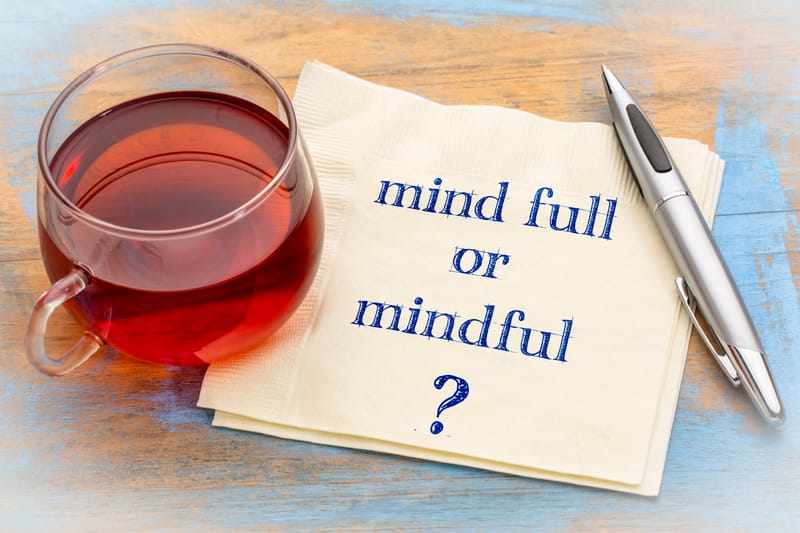Mindfulness

WHAT IS MINDFULNESS?
Mindfulness is the practice of being fully present and attentive in the present moment without judgement. It involves paying attention to thoughts, feelings, body sensations, and the surrounding environment with a sense of curiosity and acceptance (whether these are pleasant, unpleasant, or neutral).
Mindfulness used as a Western psychological strategy has its roots in Buddhism, utilising aspects of Buddha dharma practices, but having removed many of the philosophical teachings that support the practice of mindfulness and/or having 're-packaged' the teachings for application to the Western method of treating mental health.
SOME OF THE PRINCIPLES OF MINDFULNESS
Awareness: Cultivating an awareness of one's present experience.
Curiosity: Being open and interested (like a curious scientist) on one's present experience (whether pleasant, unpleasant, or neutral).
Acceptance: Embracing whatever thoughts, feelings, or body sensations are present without trying to change them.
Non-Judgement: Observing and embracing whatever experience arises without labelling the experience as good or bad.
Presence: Staying grounded in the present moment rather than dwelling on the past or worrying about the future.
HOW TO PRACTICE MINDFULNESS
Mindful Breathing: Focus on the breath, noticing the sensation of each inhalation and exhalation.
Mindful BodyScan: Paying attention to different parts of the body, observing each part for signs of tension and gently relaxing the tension.
Mindful Eating: Savouring each bite of food and paying attention slowly and mindfully to the aroma, the texture, the flavours, the swallowing.
Mindful Walking: Walking slowly and deliberately noticing the sensation of the feet touching the ground.
Mindful Listening: Fully engaging in conversations, giving your undivided attention to the speaker (ie. not being distracted by phones, computers, other things in the surrounding environment).
BENEFITS OF MINDFULNESS
Reduced Stress: Mindfulness can help lower stress levels by increasing relaxation and resilience.
Improved Focus: Regular practice of mindfulness enhances concentration and improves attention.
Emotional Regulation: Mindfulness helps in managing emotions and increasing emotional intelligence.
Better Sleep: Regular practice of mindfulness can improve sleep quality and reduce issues with insomnia.
Enhanced Well-Being: With regular practice, over time, a greater sense of peace, well-being, and contentment can arise.
WHO CAN BENEFIT FROM MINDFULNESS
Mindfulness is beneficial for individuals experiencing:
* Anxiety and Depression
* High Stress Levels
* Emotional Dysregulation
* Burnout/Compassion Fatigue
* Self-Criticism/Self-Esteem Issues
LET'S GET STARTED TODAY
TO LEARN MORE OR BOOK A SESSION CALL TRACEY ON
0416957231
